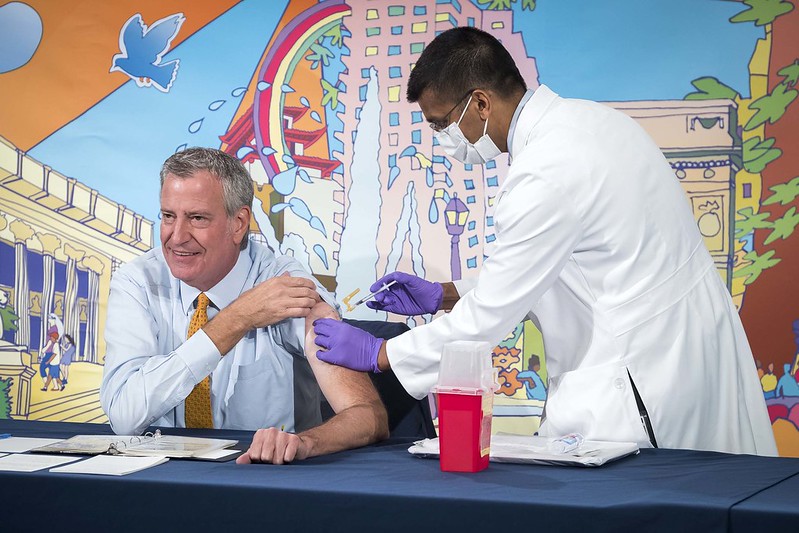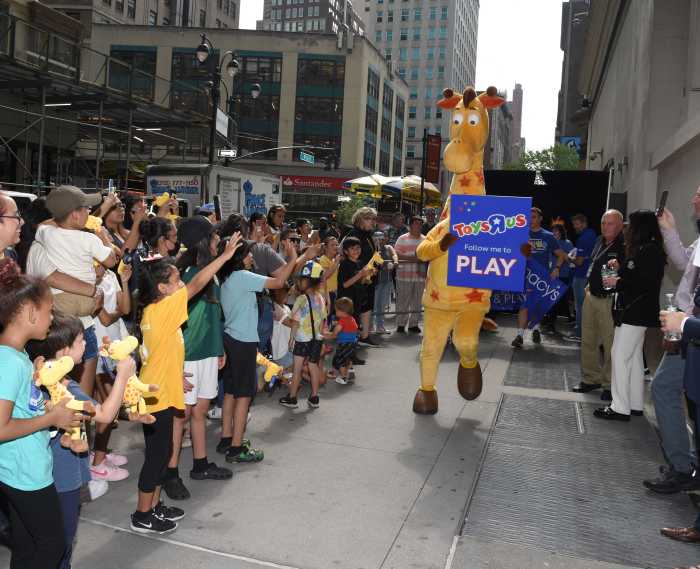
Mayor Bill de Blasio with Dr. Dave A. Chokshi, Commissioner of the NYC Department of Health and Mental Hygiene. Credit: Ed Reed/Mayoral Photography Office.
By Dr. Dave A. Chokshi, NYC Health Commisioner
Recently, important updates about the COVID-19 vaccine were announced—that certain people are now eligible for a “booster” dose. Since the beginning of COVID-19, our scientific understanding of the virus has constantly evolved, and many New Yorkers understandably have questions about this new development.
I would like to provide the “who, why, and where” about boosters.
Who should get a booster? All three brands of booster shots are available for many New Yorkers—Pfizer, Moderna, and Johnson & Johnson—and “mixing and matching” of the vaccines is safe. But who is eligible for a booster depends on the vaccine you originally received.
At this time, the Pfizer and Moderna boosters are approved for certain people vaccinated at least six months ago—specifically, people who are aged 65 or older, adults with underlying medical conditions (like diabetes), and adults at higher risk of exposure due to their job (like health care workers) or due to where they live (like nursing home residents).
The Johnson & Johnson booster is approved for anyone ages 18 or older who received at least two months ago—as I did. Since “mixing and matching” is now authorized, Johnson & Johnson recipients can get a booster of any of the three authorized vaccines (Moderna, Pfizer, or Johnson & Johnson). There is limited data showing that Moderna or Pfizer vaccines could result in higher antibody levels.
Why get a booster? The science continues to show that all three of the authorized COVID-19 vaccines are safe and save lives. That’s why getting more New Yorkers vaccinated with their first and second doses remains the most important thing. The booster adds another layer of protection—it is meant to “boost” your immunity. This is particularly important for people who are most at risk for severe illness.
Where can New Yorkers get a booster? In New York City, booster shots are available at sites in all five boroughs, and for in-home vaccination. To find a location near you, go to nyc.gov/vaccinefinder. The vaccines are free at City sites to all New Yorkers, regardless of immigration status.
Already, over 250,000 New Yorkers have received a booster shot. That means thousands of New Yorkers will have stronger protection from COVID-19. They will be able to gather with friends, family and loved ones more safely. And for any New Yorkers who are still unvaccinated, I urge you to take the first step today—join 6 million other New Yorkers and get vaccinated. It is our single best way out of this pandemic and a return to normal life again.
* Dr. Chokshi is New York City’s Health Commissioner






